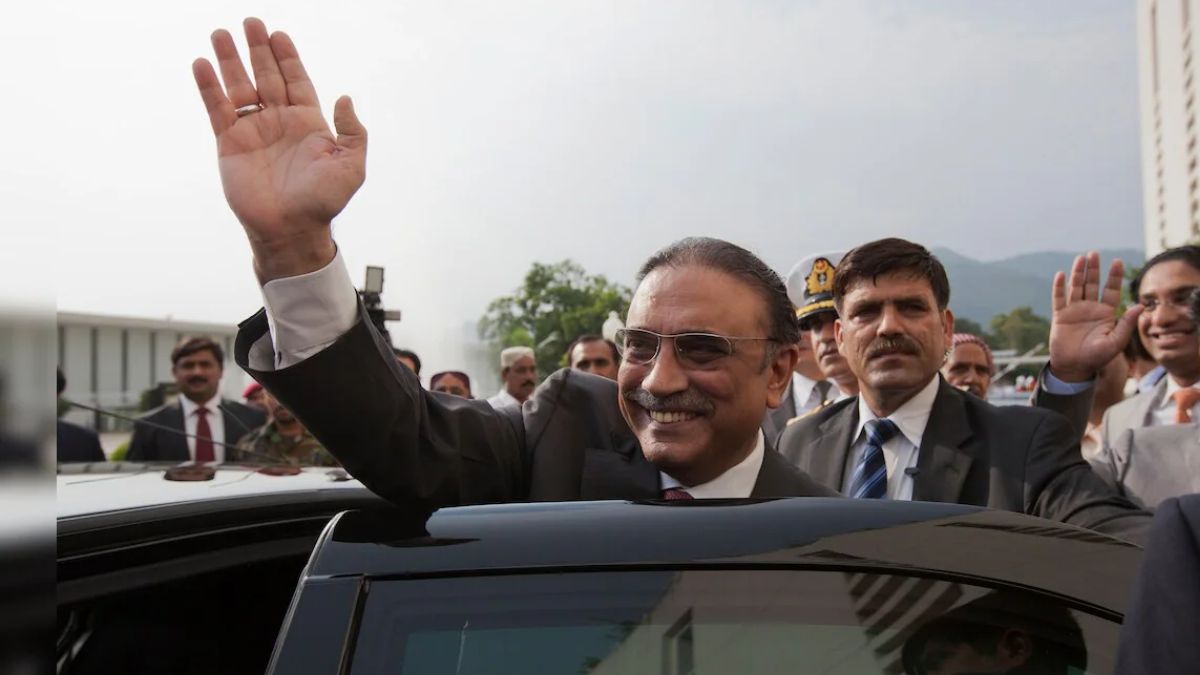Pakistan’s new president, Asif Ali Zardari, has made an announcement. As president, he is entitled to a government salary, which is around 3,000 dollars per month. But Zardari says he won’t take it because Pakistan’s economy is going through a tough time.
That is a selfless act by a dedicated leader, but think again. Zardari is one of the richest men in Pakistan. He’s worth around 1.8 billion dollars, and a lot of that wealth is from corruption. He was quite an expert at swindling money. So he had a nickname—Mister 10%—that was his cut for getting things done.
So Zardari giving up his salary isn’t selfless or noble, but political showmanship. Hopefully, Pakistan’s people don’t buy it. But let’s take a closer look at Zardari’s story. He was born into a Sindhi family of landlords, and his lifestyle became the talk of the town.
Many called him a playboy who played polo. His life took a major turn in 1987, when he married Benazir Bhutto. Now, Bhutto was Pakistan’s leader-in-waiting. She led the Pakistan People’s Party, and as she claimed power, Zardari entered politics.
First, as environment minister in 1993, and then as investment minister until 1996. During this time, Zardari was neck deep in corruption, with his rivals calling him Mister 10%.
Even foreign governments, like Switzerland and Britain, investigated his corruption. At home, he was put in jail for eleven years, but if you know Pakistani politics, you know that’s a long time because usually politicians wiggle out of jail, but not Zardari. His crimes ranged from corruption to extortion and murder.
Impact Shorts
More ShortsNow that same man is president. So there is nothing to celebrate about Zardari’s latest decision. Forget giving up his salary; he should be paying ordinary Pakistanis for putting up with him.
PR stunts aside, Pakistan’s economy is doing pretty badly. A team from the International Monetary Fund arrived on Wednesday. Its job is to review Pakistan’s bailout, which was agreed upon last year.
The IMF is supposed to disburse three billion dollars to Pakistan; two payments have been made, and the final one is awaited. If the IMF team is happy, the rest of the money will be released. The team is there in Pakistan until next Monday. The team members will hold talks with the new finance minister, Muhammed Aurangzeb. This appointment was very important, as Aurangzeb is a political outsider. He is a career banker and has studied at the Wharton School of Business. He has worked for international banks like Citi and JPMorgan and has headed Pakistan’s biggest commercial bank, HBL.
It’s a big change for the Sharifs, too. Traditionally, they have trusted Ishaq Dar with the finance ministry, but this time, he’s been shifted out. So Islamabad is sending a message to the IMF that they are serious about turning the economy around. But why should the IMF buy it?
Prime Minister Shehbaz Sharif has already called for another IMF loan and hasn’t mentioned a number yet. Reportedly, he wants six billion dollars.
The finance minister will present Pakistan’s case to the IMF team. It is now up to the IMF team members. Do they trust the new government’s intentions? Do they believe Asif Ali Zardari’s fiscal prudence? And do they trust the technocrat finance minister? At their own peril.
This is a country where elected prime ministers don’t have real power, so how powerful can a non-political finance minister be? It’s something the IMF should think about.
Views expressed in the above piece are personal and solely those of the author. They do not necessarily reflect Firstpost’s views.
)